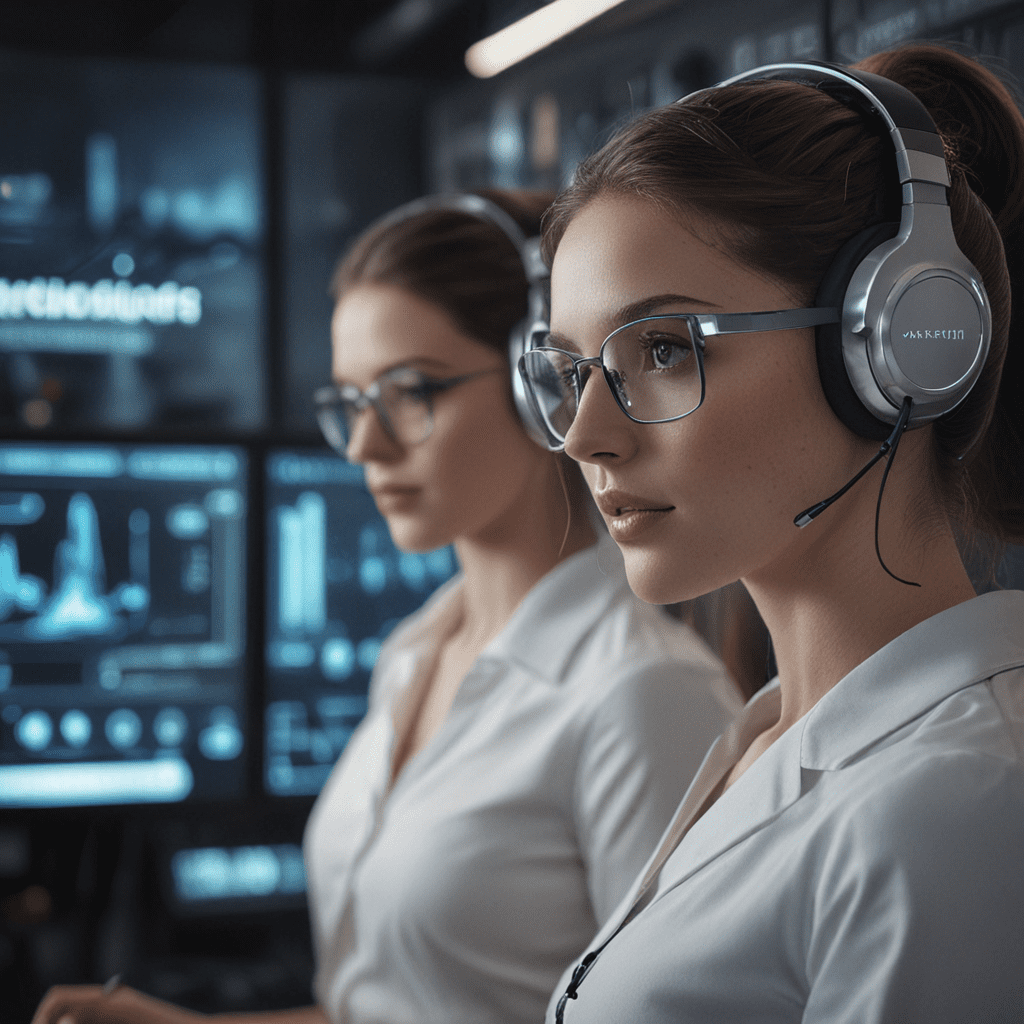The Impact of Virtual Assistants on Social Skills: Understanding the Benefits and Challenges
I. Introduction
Virtual assistants (VAs) have become increasingly prevalent in our lives, offering convenience and assistance with various tasks. These AI-powered tools are designed to enhance our productivity and streamline our interactions. However, the impact of VAs on our social skills is a topic that requires exploration. This article delves into the potential benefits and challenges posed by VAs in relation to our ability to connect with others and navigate social situations.
II. Benefits of Virtual Assistants on Social Skills
VAs have the potential to enhance our social skills by:
- Facilitating Communication: By providing instant access to information and resources, VAs allow us to communicate more effectively. They can assist with writing emails, scheduling appointments, and translating languages, reducing the effort required to engage with others.
- Enhancing Collaboration: VAs enable seamless collaboration by providing a shared platform for communication and task management. They can schedule meetings, create shared documents, and facilitate group brainstorming, fostering teamwork and social interaction.
- Expanding Networking Opportunities: VAs can help us connect with new people by suggesting relevant events, sharing industry insights, and providing networking recommendations. These tools expand our professional circles and create opportunities for social engagement.
III. Challenges Posed by Virtual Assistants to Social Skills
While VAs offer benefits, their usage can also pose challenges to our social skills:
- Reduced Face-to-Face Interactions: Overreliance on VAs may lead to decreased face-to-face interactions, potentially leading to social isolation. Excessive use can limit opportunities for non-verbal communication and the development of interpersonal skills.
- Potential for Depersonalization: When interacting with VAs, individuals may experience a lack of emotional connection due to the absence of human presence. This can lead to a sense of disconnection and reduce empathy towards others.
- Difficulty Interpreting Non-Verbal Cues: VAs cannot convey or interpret non-verbal cues, which play a crucial role in human communication. This limitation can result in misunderstandings and hinder effective social interactions.
IV. Impact on Social Anxiety and Communication Barriers
VAs can provide benefits to individuals with social anxiety or communication difficulties:
- Reduced Pressure: VAs offer a safe and low-pressure environment to practice social interactions without the fear of judgment. This can be particularly helpful for those who struggle with anxiety.
- Improved Communication Skills: By engaging with VAs, individuals can gradually improve their communication skills. This can include practicing conversation, asking questions, and expressing emotions.
V. Effects on Relationship Building and Social Connections
The impact of VAs on relationship building and social connections is complex:
- Potential to Facilitate Connections: VAs can facilitate connections by introducing individuals to new people and providing opportunities for collaboration.
- Risk of Inhibiting Connections: Overreliance on VAs can lead to decreased face-to-face interactions, which can hinder the formation of deep and meaningful relationships.
VI. Potential Impact on Empathy and Emotional Intelligence
VAs may have an impact on empathy and emotional intelligence:
- Reduced Opportunities for Empathy Development: The lack of face-to-face interactions with VAs can limit opportunities for developing empathy.
- Potential for Emotional Detachment: Constant reliance on virtual interactions can potentially lead to a sense of emotional detachment, reducing emotional intelligence.
VII. Ethical Considerations and Responsible Use
Using VAs ethically and responsibly is crucial:
- Balance Virtual and Real-Life Interactions: It's important to maintain a balance between virtual and real-life social interactions to avoid social isolation.
- Complement Human Interaction: VAs should be used to complement rather than replace human interaction. They can enhance our abilities but should not fully substitute face-to-face connections.
VIII. Strategies for Mitigating Negative Impacts
To mitigate potential negative impacts, consider these strategies:
- Encourage Hybrid Interactions: Promote a mix of virtual and face-to-face interactions to balance convenience and social development.
- Promote Awareness and Education: Educate individuals on the responsible use of VAs and their potential impact on social skills.
- Active Participation in Social Situations: Encourage active participation in real-world social situations to supplement virtual interactions.
IX. Future Research and Implications
Further research is needed to fully understand the long-term effects of VAs on social skills. Studies should explore:
- Long-Term Impacts: The long-term consequences of prolonged VA usage on social development.
- Individual Differences: How individual factors influence the impact of VAs on social skills.
- Educational Implications: The potential role of VAs in enhancing social skills in educational settings.
X. FAQ
How do VAs affect social skills?
VAs can both benefit and challenge social skills, impacting communication, collaboration, and social anxiety.
Are VAs a threat to social connections?
While VAs can facilitate connections, they may also hinder them if used excessively.
How can I use VAs responsibly?
Balance virtual and real-life interactions, use VAs as a complement to human interaction, and encourage active participation in social situations.
What should I be aware of when using VAs?
Be mindful of potential reduced face-to-face interactions, the lack of non-verbal cues, and the risk of emotional detachment.



